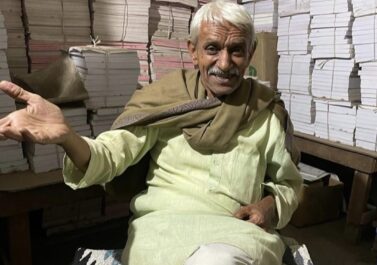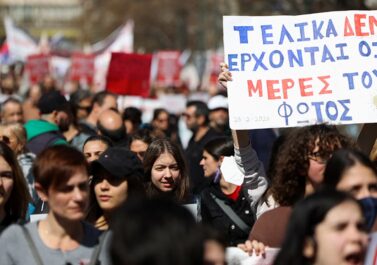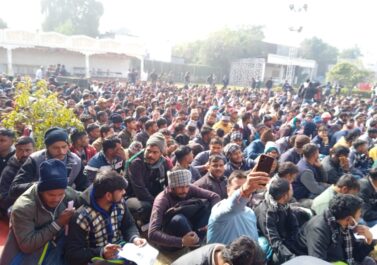The movement which has developed after George Floyd‘s murder seems very important to us. Our comrades in Germany published a longer article in the last issue of their magazine Wildcat. We have tried to follow what’s been happening from the start, but it is not so easy to understand what’s really going on, and how to analyse it. We hope your answers to our questions can bring some clarity to our view from far away, and maybe this exchange can be a step towards a common discussion and action. Please send your answers to:
angryworkersworld@gmail.com
1. What do you think explains the explosive character of this uprising? Was it just a continuation of the previous struggles against police violence (Ferguson) or have other factors/social groups come into the picture?
2. To what extent have previous strikes (e.g. at General Motors) and the covid crisis, both in terms of atmosphere and struggles, played a part, and how?
3. The current movement seems just as important as the March on Washington in 1963 – but to be honest, we’re not even sure what to call it. Is it a movement (even it has not really developed its own structures)? Is it an uprising? (but it seems to have ups and downs). Are the riots the most important aspect (even though there’s more happening than just riots…)? For a clearer assessment of this it might be useful to know what people are actually doing now – do people ‘just’ go and march once a week and that’s it? Or is stuff going on inbetween the demonstrations e.g. in more local areas? If so, what kind of things? Are discussions being held to reflect and organise how to forge ahead? If so, are new people getting involved, or is it the usual suspects? If new people, who are they?
4. The March on Washington‘s slogan, ‘Jobs and Freedom’, was an important step for the Civil Rights Movement. The current movement has already developed a more radical critique of the state, but perhaps not a clearer articulation of the role of social justice in gaining racial justice. Does Covid and the loss of jobs and income, the threat of evictions and so on, impose this question onto the movement, and if so, how?
5. Many of the texts we’ve read suggest that in the first week (and maybe on a few other later occasions), the most radical things happened, and then nothing more was possible, like in a now-or-never-situation. The reason given is mostly that the large demonstrations and NGOs watered down any radicality to liberal anti-racism. To us this seems like a lack of trust in the movement’s ability to act ‘beyond the moment’ and address wider social issues. What do you think?
6. How do you see the party political landscape in relation to the movement? Why is it that the Democrats have more difficulties this time round to co-opt the movement? BTW, will you vote in the coming election?
7. Comrades write about the role of the black middle class in the movement and compare it to the middle class of the civil rights movement, e.g. lawyers and priests. Who is this middle class today, how has it changed? Is the black middle class the movement‘s main political problem in terms of its ability to remain ‘radical?’ Or can we ignore this strata because it is in a deep crisis? Does the middle class primarily have an ideological stronghold or do they provide material resources that black proletarians depend on? If so, what and how?
8. Many say a civil war is the trump card (excuse the pun!) of the Trump regime. Will the left shut up, cease to take action and vote democratic because of this threat? How strong are the rightwing militas anyway? How do you see the state’s ability to quell the movement through repressive measures, e.g. there were critical voices within the lower ranks of the army apparatus of being deployed against the movement.
9. We mostly hear about poor black people in unsteady/criminalised jobs in the inner-cities on the one hand, and the black middle or professional class on the other. What about black workers, e.g. in the public sector or industries? Are more or less black workers employed, how did the skill structure and ‘racial composition’ change in the main industries? How do black workers relate to the movement, as well as the black middle class?
10. If you like, we‘d be interested to hear about your own experiences and activities in the past six months!



